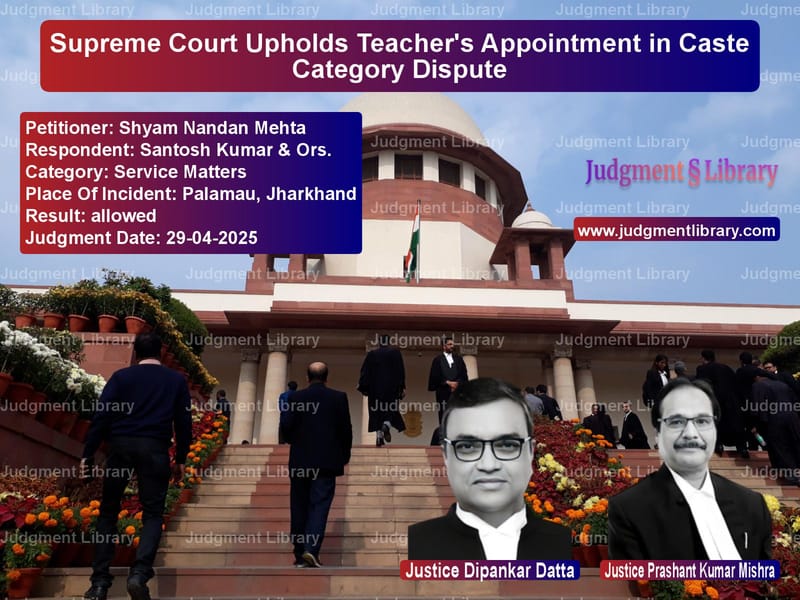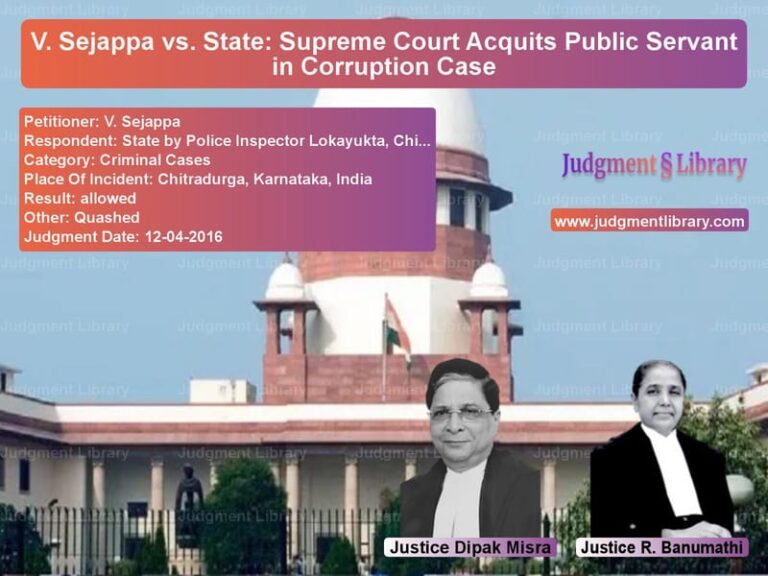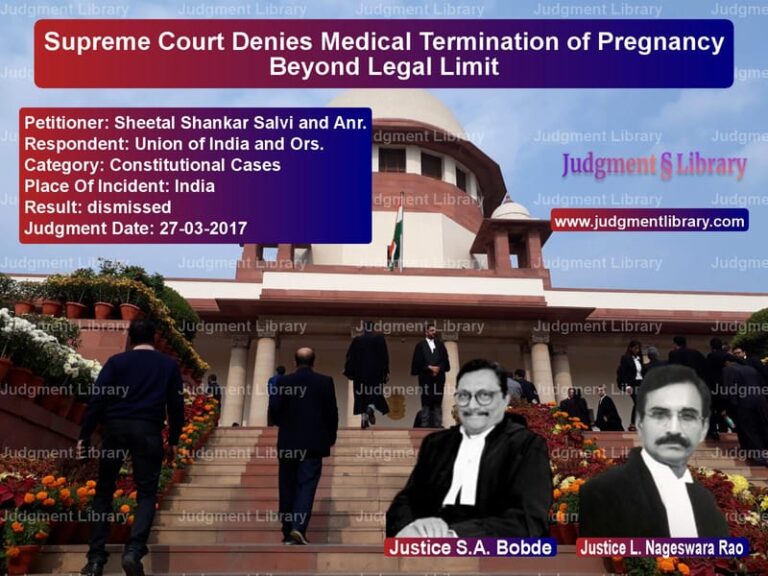Supreme Court Upholds Teacher’s Appointment in Caste Category Dispute
The Supreme Court of India recently delivered a significant judgment in the case of Shyam Nandan Mehta vs. Santosh Kumar & Ors., addressing a dispute over the appointment of an Assistant Teacher in Palamau district, Jharkhand. The case revolved around allegations of manipulation in the caste category declared by the appellant during the selection process. The judgment, delivered by Justices Dipankar Datta and Prashant Kumar Mishra on April 29, 2025, set aside the High Court’s order and upheld the appellant’s appointment. Here’s a detailed breakdown of the case and the court’s reasoning.
The dispute originated from an advertisement (No. 03/Palamau/2015) dated July 4, 2015, for the post of Intermediate Trained Assistant Teacher in Palamau district. The appellant, Shyam Nandan Mehta, secured 68.125 marks in the selection process, while the first respondent, Santosh Kumar, secured 65.496 marks. Based on merit, the appellant was appointed as an Assistant Teacher. However, two years later, the first respondent filed a writ petition alleging that the appellant had manipulated his caste status in the Teacher Eligibility Test (TET) certificate, declaring himself as a Most Backward Class (MBC) candidate during the TET examination but as a Backward Class (BC) candidate during the recruitment process.
The appellant defended his position by stating that the discrepancy was an unintentional error due to the bifurcation of the OBC category into BC and MBC by the Jharkhand government. He argued that the TET certificate was only meant to confirm eligibility for teaching posts and not to determine caste-based reservation benefits. Furthermore, he emphasized that he had not gained any undue advantage, as the cutoff marks for BC and MBC categories were the same in the TET examination, and he had secured higher marks than the first respondent in the recruitment process.
The High Court, however, allowed the writ petition and set aside the appellant’s appointment, citing Clause 20 of the advertisement, which required candidates to provide correct information. The Division Bench affirmed this decision, focusing on the alleged manipulation in the TET certificate.
In its judgment, the Supreme Court carefully examined the facts and arguments presented. The court noted that the original record contained photocopies of the appellant’s TET certificates, some mentioning ‘MBC’ and others ‘BC,’ along with a caste certificate dated December 14, 2013, declaring him as a BC candidate. The court observed that there was no evidence of fraudulent intent or manipulation by the appellant. Importantly, the recruiting agency had not canceled his appointment or alleged any wrongdoing on his part.
The court highlighted key arguments from both sides. The appellant’s counsel, Mr. Ajit Kumar Sinha, argued:
‘The appellant committed unintentional error by mentioning his caste as ‘MBC’ instead of ‘BC’ while submitting the form for TET examination in the year 2012. The same occurred due to bifurcation of ‘OBC’ into ‘BC’ and ‘MBC’ by the State Government.’
On the other hand, the first respondent’s counsel, Mr. Nikhil Goel, contended:
‘The appellant obtained ‘OBC’ certificate on 03.02.2001 and revised caste certificate was issued in his favour for Backward Class on 14.12.2013 whereas in the TET examination he appeared as ‘MBC’ candidate, therefore, there is clear contradiction and manipulation in his TET certificate.’
The Jharkhand Academic Council (JAC) also submitted that the appellant could not change his caste category without correcting the TET certificate. However, the Supreme Court found no merit in these arguments, as the appellant had not derived any undue benefit from the discrepancy.
The court concluded:
‘The present is not a case of submission of false certificates of qualifying examination or a false caste certificate. Thus, in our considered view, the High Court has wrongly set aside the appellant’s appointment.’
Accordingly, the Supreme Court allowed the appeal and set aside the impugned order, restoring the appellant’s appointment. The judgment underscores the importance of examining the intent and actual impact of discrepancies in recruitment processes, rather than relying solely on technicalities.
Petitioner Name: Shyam Nandan Mehta.Respondent Name: Santosh Kumar & Ors..Judgment By: Justice Dipankar Datta, Justice Prashant Kumar Mishra.Place Of Incident: Palamau, Jharkhand.Judgment Date: 29-04-2025.Result: allowed.
Don’t miss out on the full details! Download the complete judgment in PDF format below and gain valuable insights instantly!
Download Judgment: shyam-nandan-mehta-vs-santosh-kumar-&-ors.-supreme-court-of-india-judgment-dated-29-04-2025.pdf
Directly Download Judgment: Directly download this Judgment
See all petitions in Employment Disputes
See all petitions in Recruitment Policies
See all petitions in Public Sector Employees
See all petitions in Termination Cases
See all petitions in Judgment by Dipankar Datta
See all petitions in Judgment by Prashant Kumar Mishra
See all petitions in allowed
See all petitions in supreme court of India judgments April 2025
See all petitions in 2025 judgments
See all posts in Service Matters Category
See all allowed petitions in Service Matters Category
See all Dismissed petitions in Service Matters Category
See all partially allowed petitions in Service Matters Category







